0ct0p0s
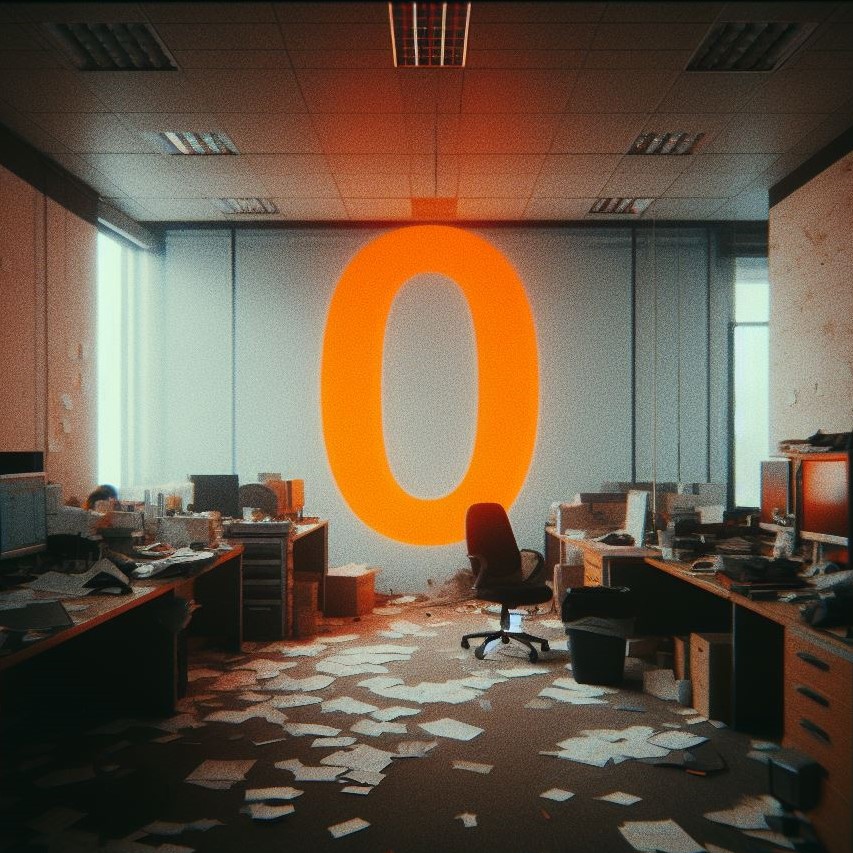
0ct0p0s is an organization providing a platform for sharing collective and embodied research methods that enable the emergence of other ontologies and social imaginaries
through play and performance.
PRACTICE
Temporal Worlding
Remote Reality Game that invites players to change how they move through worlds by altering their perception of time. Beyond standardised clock time and our own body clocks, the game expands experiences of time to encompass our socialised senses of the future, past, and present.Carina Erdmann, Steph Holl Trieu
Dream Dungeon
Role Play Game that lets you (re)enter and explore a collective dreamscape. Connecting and merging the different dream locations in a growing underground architecture, it provides a place for a fictional tale to unfold through free association.Carina Erdmann, Nick Koppenhagen, Balint Mark Turi
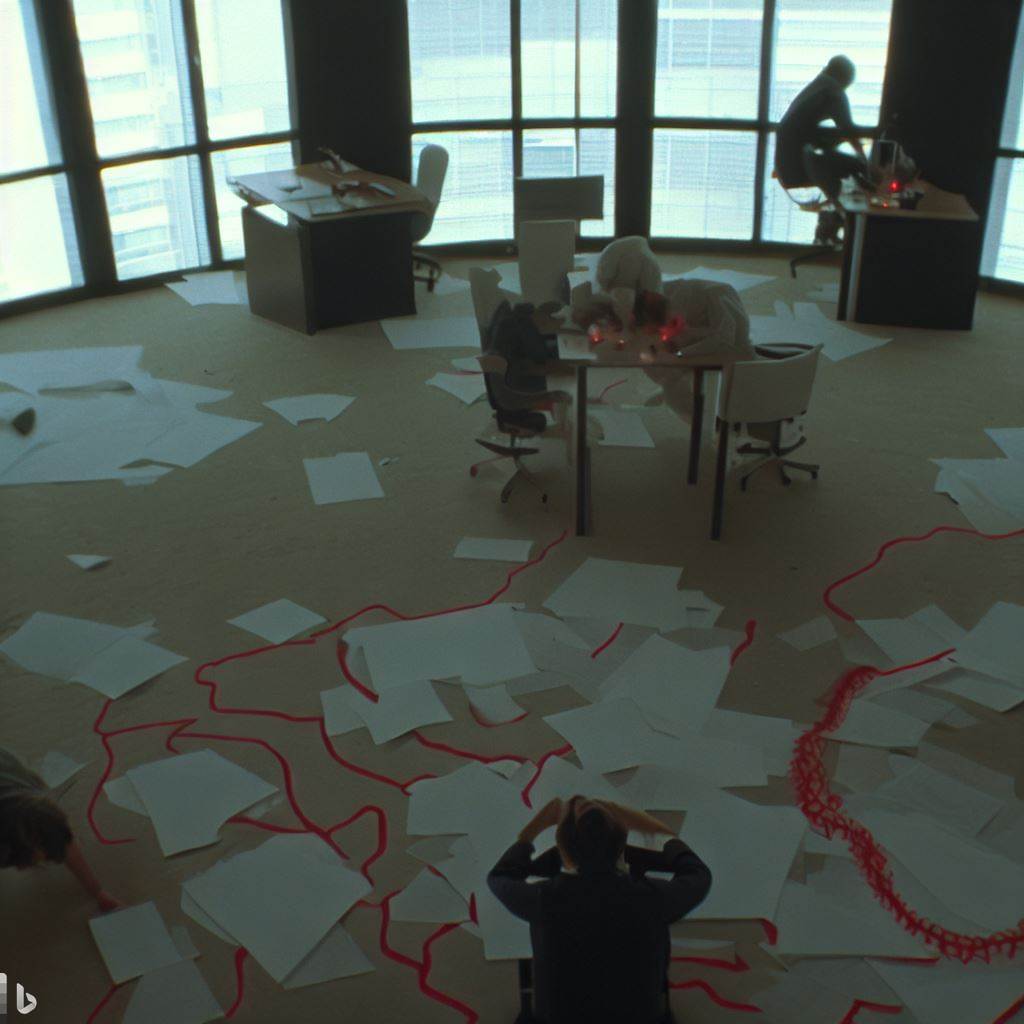
Sculpting Sonic Worlds
Workshop experimenting with collective worldbuilding methodologies through the medium of sound.Steph Holl Trieu

LUCIID
Extended Reality Game in which Remote Players are embodied by Real Live Avatars who move in a physical gamespace via video livestream and an adaptive soundscape and game score.Carina Erdmann, Steph Holl Trieu Marijn Degenaar, Lendl Barcelos
Where the Unborn Conspire
Workshop approaching world-making through voice, breath, relational dynamics, and role-play techniques. It forms a metaphysical narration of becoming a choir.Carina Erdmann

Buried Accomplices
Online Role Play set in the future vision of
E.M. Forster’s 1909 novella ‘The Machine Stops’ lets players re-construct a speculative past through archival video fragments and the method of loci.Carina Erdmann, Nick Koppenhagen
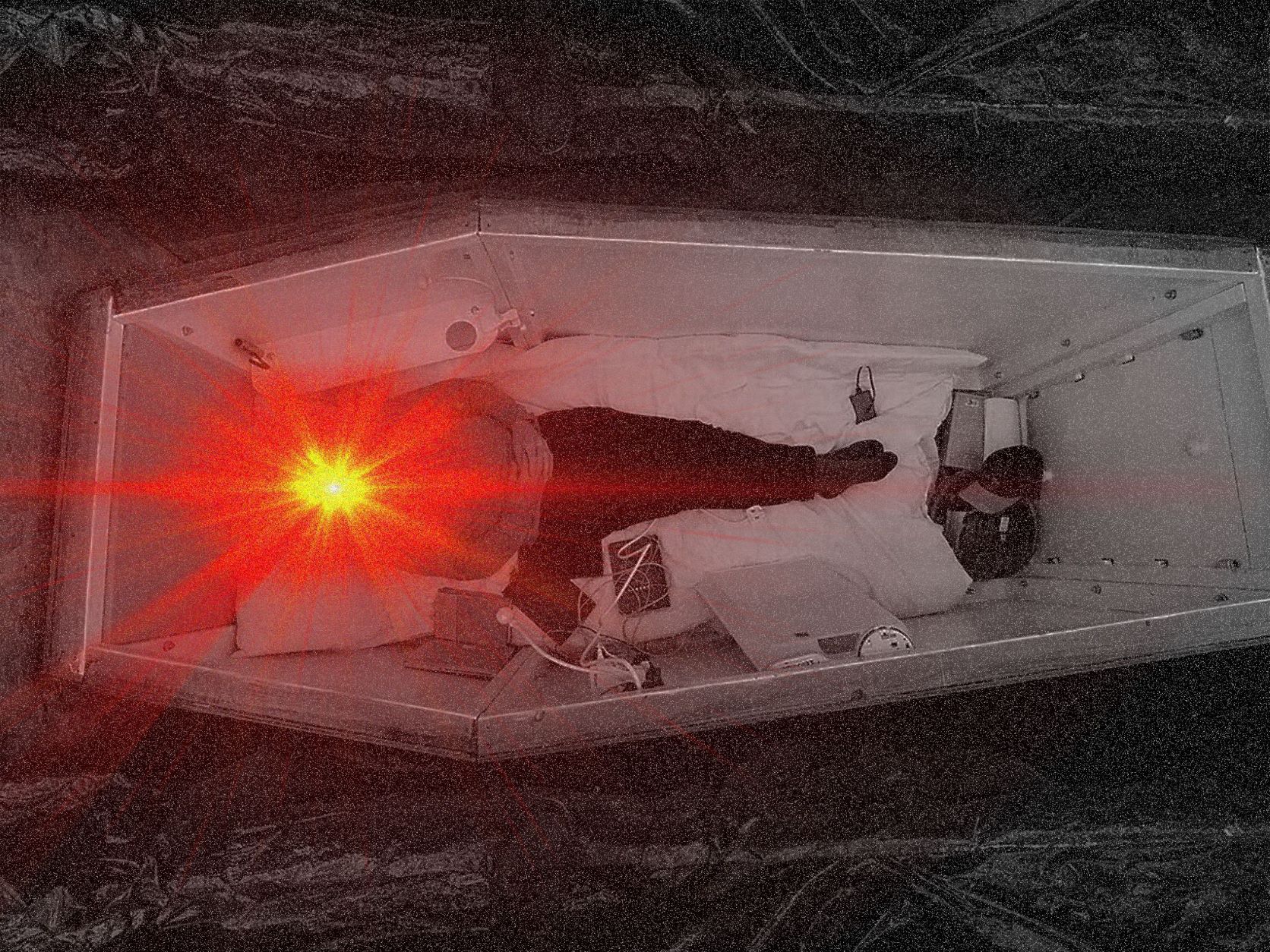
COMMISSIONS
Footnotes: Annotating the Future of Arts Education
(Commission by → School of Commons /Carina Erdmann , Steph Holl Trieu )
Role Play, workshop and conference held at the Zurich University of the Arts letting participants develop and research critical designs of future realities for arts education within a fictional setting of 2045.
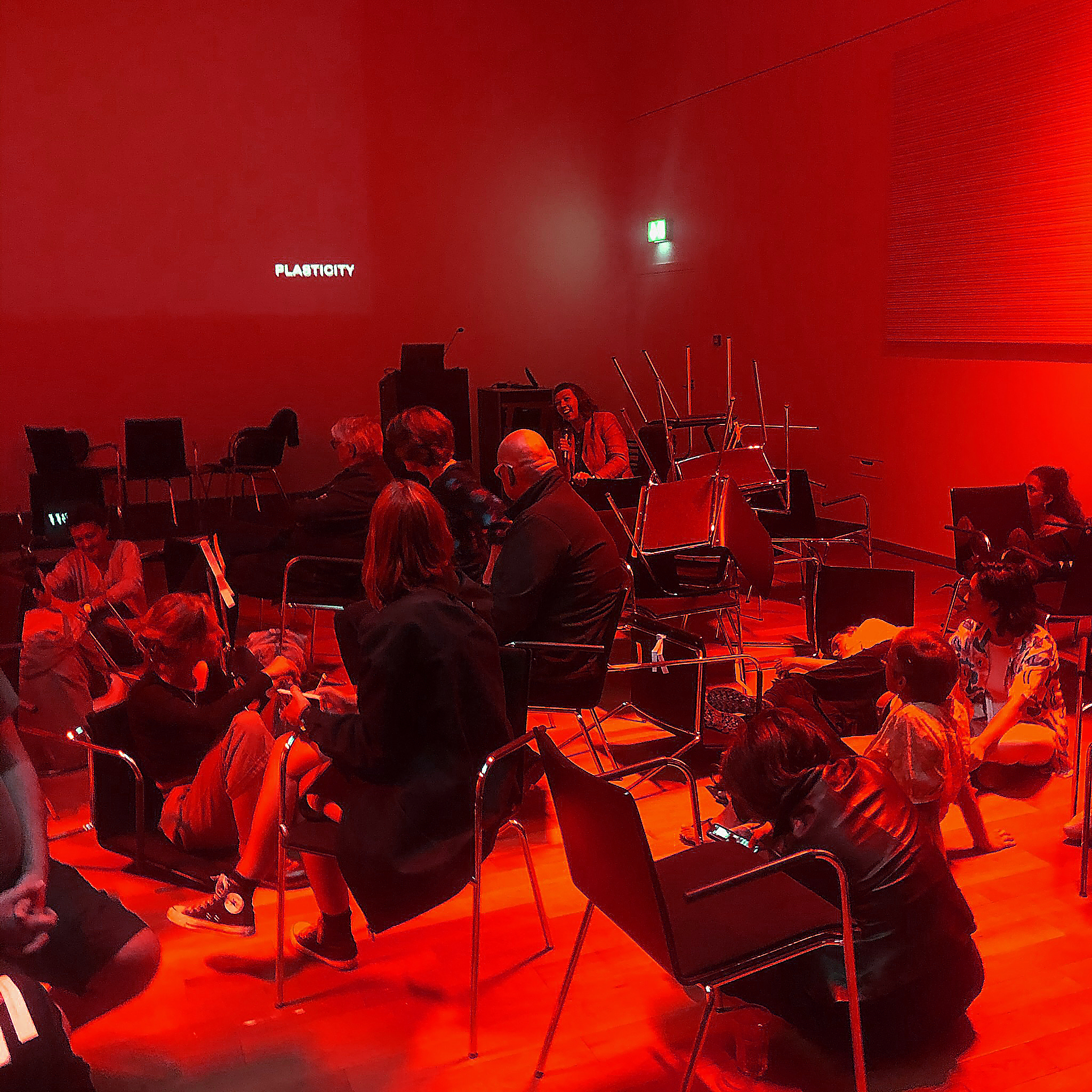
Emotional Futures
(Commission by →LIGHT ART SPACE (LAS) / Carina Erdmann, →Marcel Darienzo, →Ed Fornieles, →Steph Holl Trieu, →Andrew Pasquier, →Xiaoji Song, →Moritz Tontsch & →Ingeborg Wie Henriksen) Extended Reality Game letting players extract and account for each other’s emotional labor in the fictional currencies Blood, Sweat, and Tears, produced and valorized in interaction and relation to other players. Reconstructing paradigms of gamification and financialization, it aims to reveal and subvert the co-creative force of datafication through recursive feedback.
Commons: The Game Show
( Commission by Curatorial Collective for Public Art and Parzelle X / Collaboration with Steph Holl Trieu, Trakal, Carina Erdmann / Funded by Berlin Senate Department for Culture and Social Cohesion)Participatory art project suggesting the speculative formation of a Commons on an urban wasteland as the premise for a game show. Residing on the intersection of public art, art film and reality television, it explores the challenges of founding and maintaining a communal resource through a series of participatory mirco-LARP scenarios.
MORE INFO
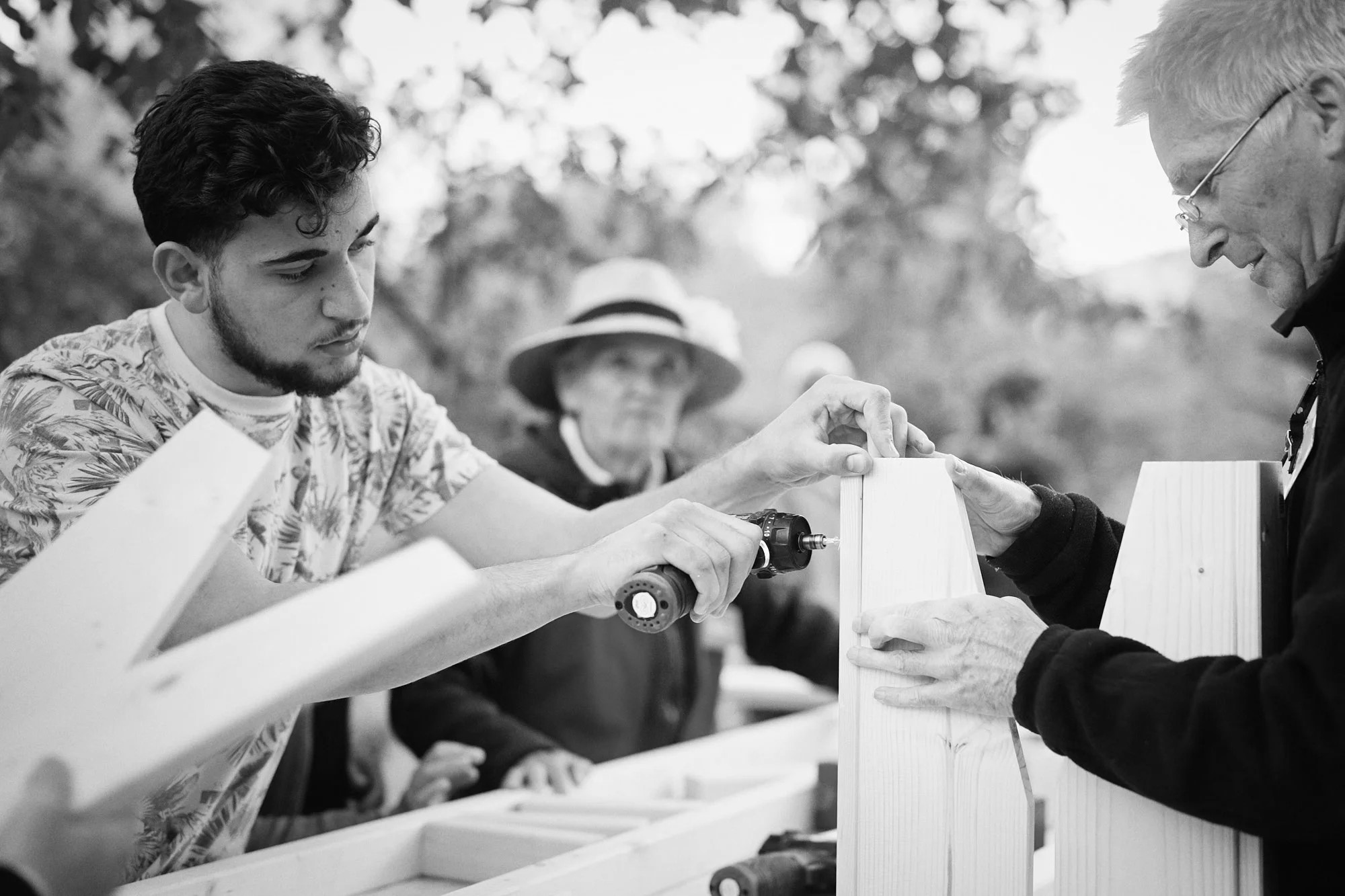 © Edgard Berendsen
© Edgard Berendsen
RESEARCH
DISTANT BODIES & ACCOMPLICES
Research project investigating embodied inter-action and inter-subjective exchange between player and avatar through Remote Role Play.Carina Erdmann

Machine Acts
(Pilot Project for → FILM-EU RIT/ Carina Erdmann, Patrícia Sequeira Brás, Liina Keevallik, Rita Grácio, Vincent Thornhill, Veronica Romhany, Tobias Fruhmorgen) Research pilot investigating the narratives around AI and how they become entangled with our own narration and subject creation as we communicate in digital environments that are increasingly governed by predictive algorithms. Weaving philosophical concepts (like dividuum, plasticity) into different Role Play Scripts for both human players and GTP-3 to simulate the recursive feedback loops that condition human-machine interactions.
Carina Erdmann

Carina Erdmann lives between Berlin and Brussels working as artist, researcher, curator and mentor in Game Design. Her
practice engages non-linear narration, role play, and collective worlding as a tool for enacting critical thought. Co-creating sensuous simulations of social speculation it lets players (re)visit collective memories, (per)form
plural perspectives and act out alternative agencies. In the PhD project “DISTANT BODIES AND ACCOMPLICES – Rethinking the interaction between player and avatar through remote LARPing ' she investigates the hybridization of online gaming and
performance
as part of the ongoing research into Preformative and Pervasive Play opened on 0ct0p0s.net
WEBSITE
RESEARCH
CV
Where The Unborn Conspire: Worlding workshop for more than one voice*
Everything not saved will be lost
— Nintendo
Which songs are sung after the end of a world? The workshop approaches worlding through voice, breath, relational dynamics, and role-play techniques. It is a game played by the living, summoning the voices of those who will come after them, through the resonance of their flesh. You recognize me by my voice. I learned to love listening to you. The characters dwell in what is left of the institution - A ruin to re-inhabit. Participants can play a character from the computer at home or become their body moving through the Theater space. Either way, they act as Accomplices as they construct the metaphysics of another world. An apocalypse is also a beginning.
18.09.21 @ Shedhalle Protozone 4: Extra Worlding
Concept by Carina Erdmann
with support of Lendl Barcelos and School of Commons
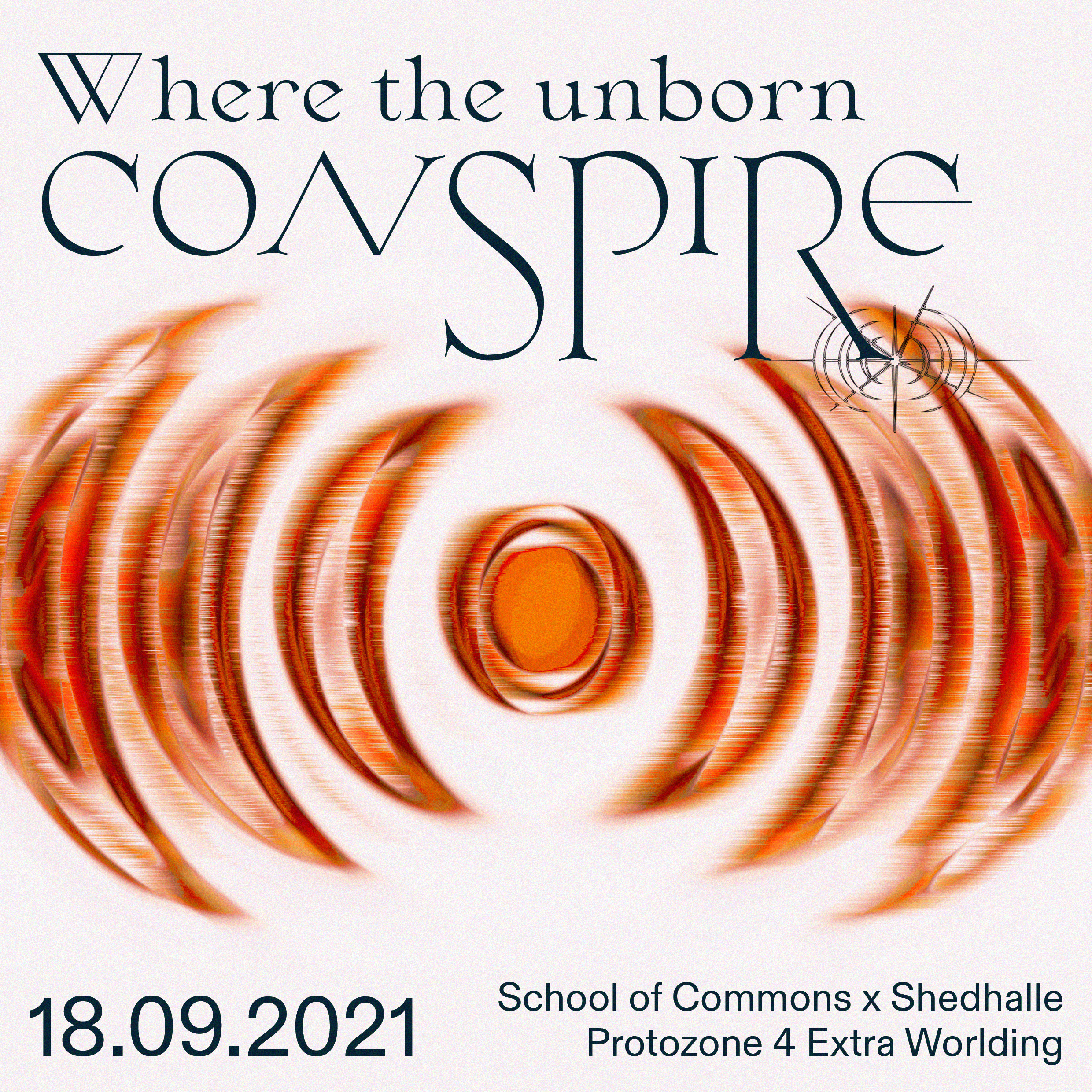 Where the Unborn Conspire, Invite, 2021, Graphic Design: → Marijn Degenaar
Where the Unborn Conspire, Invite, 2021, Graphic Design: → Marijn Degenaar
First the remote players created a world collectively from which characters emerged that were then embodied by the participants physically present at Shedhalle. They were connected via livestream transmitted by smartphone worn with chestmounts.
The Worlding Workshop included adaption of existing scores for performance and choir improvisation, sensing, deep listening, and feminist practice.**
Reflections:
‘It is the idea of intersubjectivity. You are one character. A me & you relation is held within the character. Mutual acceptance produces the subject. The me is the me & you feeling sth. together. A way of working through who that me is together.’ — Pule
‘The experience allowed us to think through really crucial concerns: How do we keep our minds open to the potential of true change? What would that mean for us as people? Who would we become?’ — Chantelle
Where the unborn conspire_ WORKSHOP SCRIPT
*After the title ‘For more than One Voice: Toward a Philosophy of Vocal Expression’ by Adriana Cavarero
**Deep Listening: A Composer's Sound Practice - by Pauline Olivieros, Undoing What We Know: Dramaturgy as Cosmology on the Making
→ by Andrea Božić and Julia Willms, → To become Two: Propositions for Feminist Collective Practice by Alex Martinis Roe
LUCIID
#Virtual Embodiment #Relational Worlding #Somatic Scores #Adaptive Audio #Social Dreaming #Intersubjectivation
LUCIID is an Remote Reality Game in which online players are embodied by Real Live Avatars who move in a physical gamespace. Players can take on the role of a playable character wearing a camera mounted on a chest harness, transmitting their first person perspective, or ‘take action’ from home as a player on the browser-based multiplayer interface. The (literal) framing of a computer game opens as a portal into mental, physical, and performative space. For this purpose a lightweight web application is built, that connects players via video livestream and leads them through an adaptive game script. The interactive score combines methodologies of Role Play, Game Design, Performance Improvisation and Psychoanalysis to craft a transindividual and transformative experience for the players, offering experiences of intersubjectivity and a space for (self)reflection. What happens when your avatar is another person with their own set of motivations? What resistance and implicit violence is felt when you are being played?
ABYSM, Player: Dawid Grzesinski & Nikolas Brummer, UI Design by Marijn Degenaar, Font:Icarus by Sophia Brinkgerd
The movements and choices made within the game shape the performance scripts and soundscapes that serve as a guide for characters and players alike. Together they set out on a journey from personal to collective memory and trauma. The story is non-linear and subverts narrative conventions and archetypes - following the Fool’s rather than the Heros Journey. It takes place in a Multiplayer Game played in a state of connected Hypnagogia, the state between wakefulness and sleep. Multiple QUESTS lead through three REALMS: The Node, The Edge, The Field, which correspond to division of Theatre Space: Backstage, Stage, Auditorium.
LUCIID, Player: Sayuri Chetti and Maciec Sado, UI Design by Marijn Degenaar,
Font:Icarus by Sophia Brinkgerd
Together, player and avatar construct the shared identity of their character, as they set out on a journey from personal to collective memory and trauma. The story is non-linear and subverts narrative conventions and archetypes. It takes place in a Multiplayer Game played in a state of connected Hypnagogia, the state between wakefulness and sleep. Multiple QUESTS lead through different realms which are mapped to the physical gamespace.
Considering the role of sound in accessing deeper layers of meaning, memory, and non-verbal communication, the project foregrounds the development of an adaptive soundscape that responds to and evolves with the player in different ways. Embracing both emergent and analog technologies it investigates areas of Adaptive Audio, Auditory AR, Psychoacoustics, and Improvisational Performance. Probing into algorithmic feedback systems, the project experiments with generative music eg. using sensors, spatial mapping, biofeedback. As bodily or perceptive extension, it explores the effects of haptic and spatial sound but also somatic exercises.
Online Player, UI Design by → Marijn Degenaar
The project opens up to the potential of extending our perception and world-making through sound; but also explores critical views on the brain's plasticity and sensual ways to address the mutual feedback between between algorithms and our bodies. It experiments with various choreographic scores, their relations to the notation of music, and how to translate them to social interactions. Exploring the possibilities and challenges of remote interaction, the project is invested in the search for embodied forms of communication, moving beyond the confines of the screen: being moved by one another's voice or reacting to rhythms sensed through the skin.
Memory Stack, Player: Nikolas Brummer, UI Design by → Marijn Degenaar
The game serves as a training ground for imaginative flexibility, as collective fictions and colliding worlds become entangled and bleed into the physical and personal reality of the participants. How can we open ourselves towards different ways of knowing as well as the implied not knowing? Can we perceive and reconstruct an interwovenness between multiple perspectives and modes of being?
Technology: Auditory XR, Mobile web application with integrated video live stream, responsive soundtrack via real-time feedback and interactive narrative score.
Direction: Carina Erdmann
Programming & UI Design: Marijn Degenaar
Music: Lendl Barcelos
Narrative Design: Steph Holl-Trieu
Technical Advice: Nick Koppenhagen
Supported by
Théâtre de Liège, ST'ART invest, Rayonnement de la Wallonie
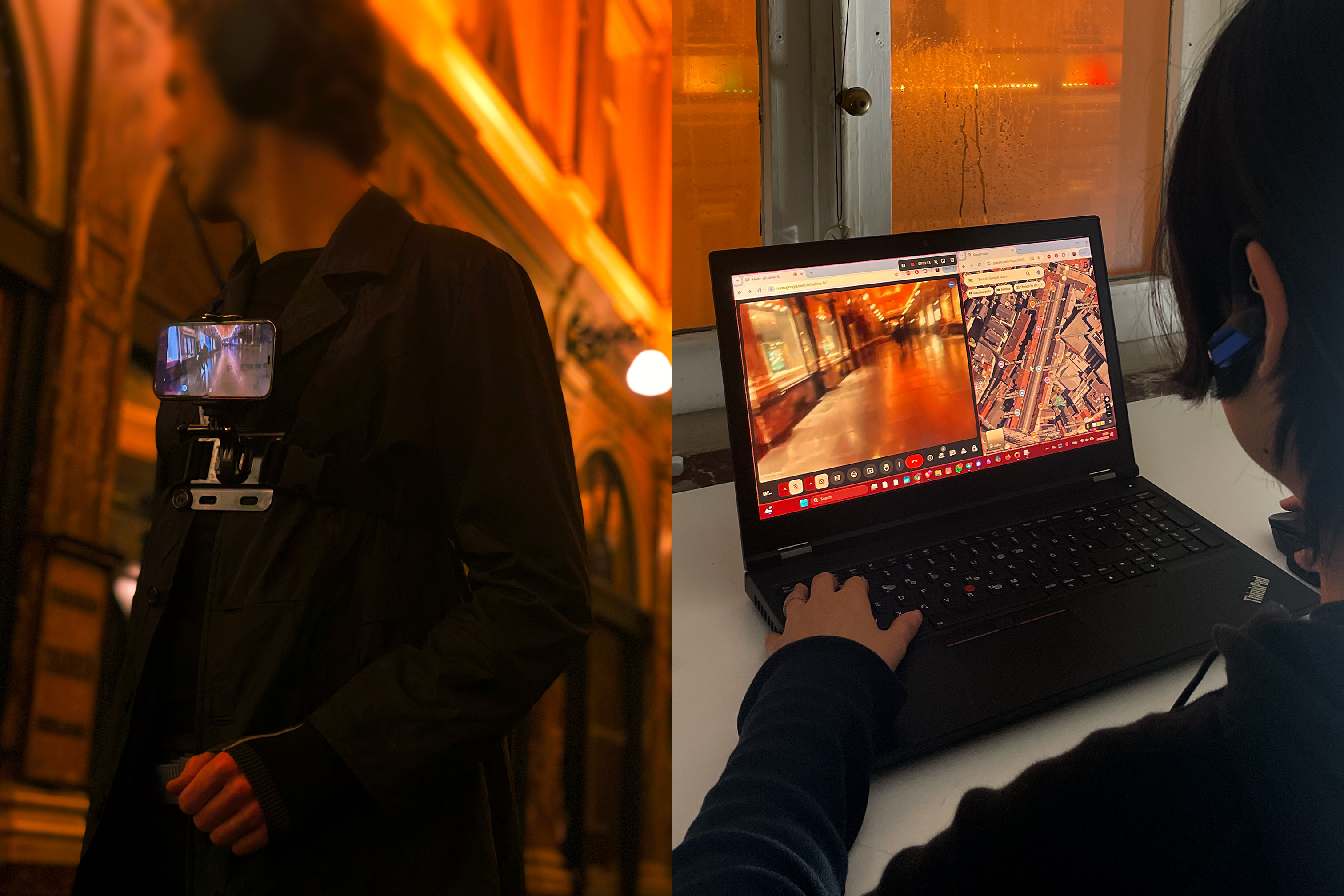
Temporal Worlding
Remote Reality Games as Spatio-Temporal Navigation and Narrationby Steph Holl-Trieu & Carina Erdmann
Temporal Worlding is a Remote Reality Game that blends elements of digital gaming and Live Action Role-Playing (LARP). It uses the framing of a video game in which two players role-play the dynamic between the gamer and the avatar.
The game invites players to change how they move through worlds by altering their perception of time. Beyond standardised clock time and our own body clocks, the game expands experiences of time to encompass our socialised senses of the future, past, and present. In an unfolding dialogue, players come to terms with how they are always conditioned by an exterior relation—to another person, pace, technology, chronometer, or institution.
Using role-play, nonlinear narration and collective worlding the game scores alternative modes of experiencing time nested between our existing temporal infrastructures.
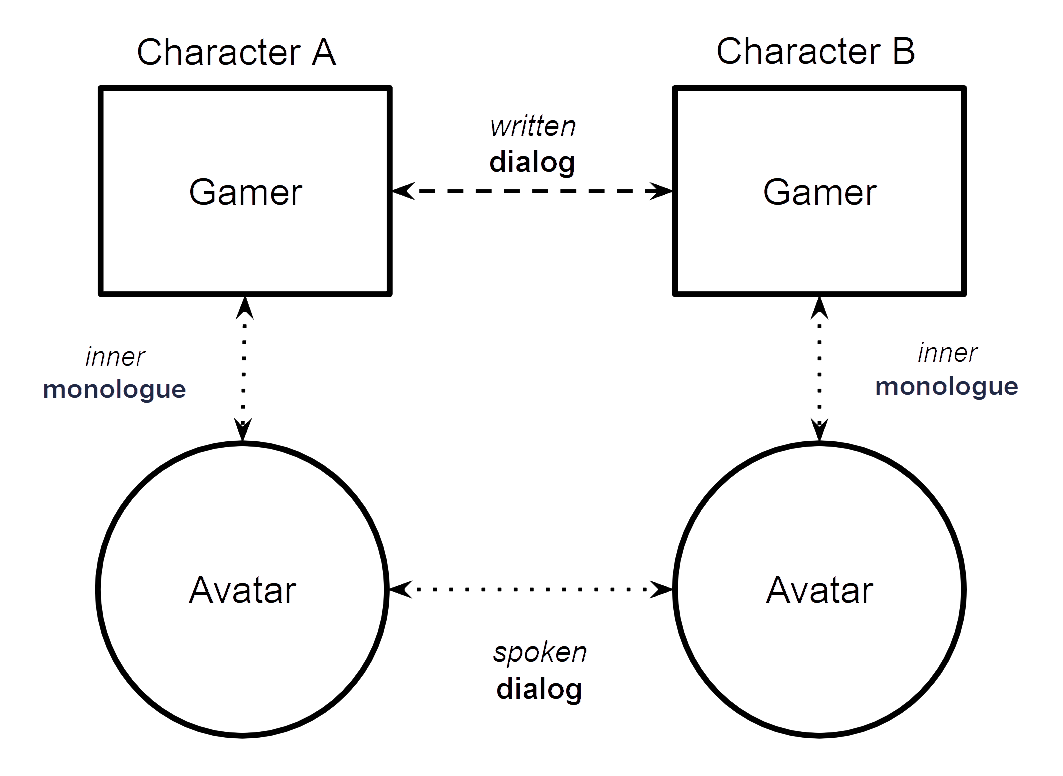
The question of systems of time-keeping and the structuring of temporality is central to design processes and experiences of games. The very foundational theories of games and play (Huizinga, 1950; Caillois, 2001) argue that ludic spaces are defined by clearly delineated temporal durations that separate game temporalities from everyday lived experience. Allowing for the navigation of time through pausing, slowing down, rewinding, replaying, reactivating time, video games offer entirely new and malleable experiences of temporality (Hanson, 2018). In Live-Action-Role-Playing (LARP), time and temporality is an equally crucial tool to set game worlds apart from consensual reality, whether it is through the setting of a time frame to define the magic circle, meta techniques that allow scenes to be played out in non-chronological time, or fluid time structures to pursue multiple plotlines simultaneously.
As a Remote Reality Game, Temporal Worlding proposes a game set up in which half of the participants are on site and half of them call in from around the world. Participants are paired and become one character with two bodies: player and avatar. Together, they go on a walk, in which the player directs the avatar and instructs their movement via voice call. The game play is facilitated through a narrative that overlays the real world environment of the players with a speculative framing using temporal navigation systems and narrative structures from games. While the workshop investigates hybrid or remote interaction, it also introduces embodied forms of knowledge production, tuning into cyclical and linear rhythms that condition the body through somatic exercises.
Through different temporal logics the players record their avatars' narrations in a shared spatio-temporal map (a shared online whiteboard that connects all players), channelling the avatars’ concrete embodied experiences into an abstract overview. In an intimate exchange in which the participants rely on each other's asymmetric means of perception, the avatars’ bodies become the interfaces for the players to experience the city. The players trace and map the pathways of their real-life avatars walking through the city leveraged as gamespace.
This project is an invitation to analyse, reflect on and conspire with and against modes of temporal worlding. Temporal worlding can be understood as the making and unmaking of worlds through infrastructures of time and temporal practices. From the first railway accidents to the logistics of global supply chains, the imposition of labour regimes and the affordances of high-frequency trading, the demand for synchronised clock time is inseparable from colonial conquest, militarism, financial and industrial capitalism. Within, against and beyond the social control of time, we find uneasy, weird and wayward temporalities produced through lived experience and experimental navigation.
We propose the use of role-play, nonlinear narration and collective worlding to examine and construct livable alternatives to existing infrastructures. Our aim is to experience and negotiate divergent conceptions of time as they exist within consensual reality. Negotiating the sometimes paradoxical patterns as well as conducive synergies that emerge between these temporal practices, we hope to develop the social and collective agency to launch operative fictions and heterogeneous worlds that have the potential to disrupt, undermine and reshape ‘our time(s)’.
PAST WORKSHOPS:
Goethe Institute, March / April 2025, Beijing/ Shanghai
au JUS, February 19, 2025, Brussels
DIGRA Conference 2024, July 1-5, 2024, Guadalajara
Kollektiv Zirkusgasse, June 14, 2024, Vienna
Academy of Fine Arts Vienna – Art and Space: Spatial Strategies , March 14, 2024, Vienna
References:
Caillois, Roger. Man, Play, and Games. Translated by Meyer Barash. University of Illinois Press, (1961) 2001.
Hanson, Christopher. Game Time. Understanding Temporality in Video Games. Indiana University Press, 2018.
Harviainen, J. Tuomas. “Time and Temporality in Live-Action Role-Playing”. Homo Ludens 1(11), 2018.
Huizinga, Johan. Homo Ludens: A Study of the Play Element in Culture. Beacon Press, 1950
Koljonen, Johanna, et. al. LARP Design : Creating Role-Play Experiences. Knudepunkt, 2021
Lefebvre, Henri. Rhythmanalysis : Space Time and Everyday Life. Continuum, 2004
Phillips, Rasheedah. “Dismantling the Master('s) Clock[work Universe], Pt. 1”, Space-Time Collapse I: From the Congo to the Carolinas, Black Quantum Futurism, The AfroFuturist Affair/House of Future Sciences Books, 2016, 15-34
Sharma, Sarah. In the Meantime : Temporality and Cultural Politics, Duke University Press, 2014
Thompson, E.P. “Time, Work-Discipline, and Industrial Capitalism”. Past & Present, Volume 38, Issue 1, December 1967, Pages 56–97, https://doi.org/10.1093/past/38.1.56
Volmar, Axel, and Kyle Stine, editors. Media Infrastructures and the Politics of Digital Time: Essays on Hardwired Temporalities. Amsterdam University Press, 2021. https://doi.org/10.2307/j.ctv1xcxr3n.
Zhexi Zhang, Gary. Catastrophe Time! Strange Attractor Press, 2023
Goethe Institute, March / April 2025, Beijing/ Shanghai
au JUS, February 19, 2025, Brussels
DIGRA Conference 2024, July 1-5, 2024, Guadalajara
Kollektiv Zirkusgasse, June 14, 2024, Vienna
Academy of Fine Arts Vienna – Art and Space: Spatial Strategies , March 14, 2024, Vienna
References:
Caillois, Roger. Man, Play, and Games. Translated by Meyer Barash. University of Illinois Press, (1961) 2001.
Hanson, Christopher. Game Time. Understanding Temporality in Video Games. Indiana University Press, 2018.
Harviainen, J. Tuomas. “Time and Temporality in Live-Action Role-Playing”. Homo Ludens 1(11), 2018.
Huizinga, Johan. Homo Ludens: A Study of the Play Element in Culture. Beacon Press, 1950
Koljonen, Johanna, et. al. LARP Design : Creating Role-Play Experiences. Knudepunkt, 2021
Lefebvre, Henri. Rhythmanalysis : Space Time and Everyday Life. Continuum, 2004
Phillips, Rasheedah. “Dismantling the Master('s) Clock[work Universe], Pt. 1”, Space-Time Collapse I: From the Congo to the Carolinas, Black Quantum Futurism, The AfroFuturist Affair/House of Future Sciences Books, 2016, 15-34
Sharma, Sarah. In the Meantime : Temporality and Cultural Politics, Duke University Press, 2014
Thompson, E.P. “Time, Work-Discipline, and Industrial Capitalism”. Past & Present, Volume 38, Issue 1, December 1967, Pages 56–97, https://doi.org/10.1093/past/38.1.56
Volmar, Axel, and Kyle Stine, editors. Media Infrastructures and the Politics of Digital Time: Essays on Hardwired Temporalities. Amsterdam University Press, 2021. https://doi.org/10.2307/j.ctv1xcxr3n.
Zhexi Zhang, Gary. Catastrophe Time! Strange Attractor Press, 2023